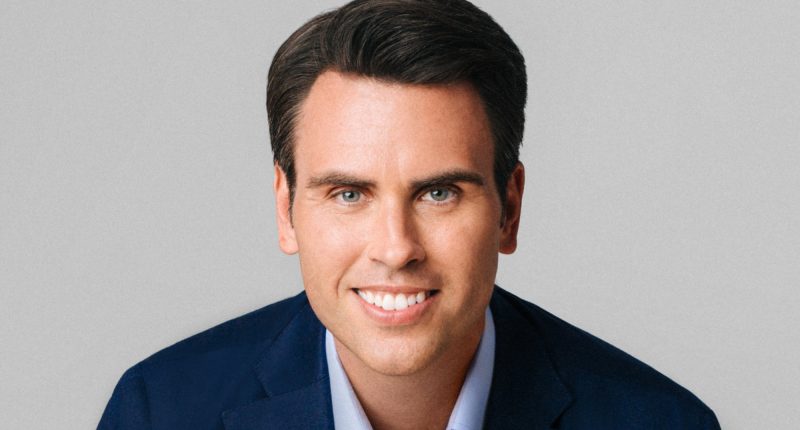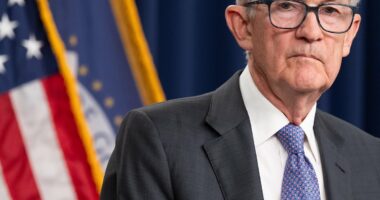Share this @internewscast.com
When most kids were waiting in long lines to ride roller coasters at Hershey Park, Ryan Stana found himself gravitating to something that gave him a much bigger thrill: the park’s theater. “I would sit and watch the shows — and I was captivated,” he told Entrepreneur. “And when I was a senior in high school, I was still watching those shows, but I started to notice this ‘unpolished’ quality. Maybe my rose colored glasses broke, but I saw an opportunity to bring excellence and innovation to attraction and leisure entertainment.”
Stana says he had two dreams when he was a kid: to become a Broadway performer and to become a teacher. And those two passions came together when, shortly after college, he launched his own live experiences company RWS Global. “I am very lucky,” he says, “Both of my parents are entrepreneurs and are extremely supportive — they taught me that with hard work, anything is possible.”
Since its launch from the corner of a crowded New York City apartment (more on that later), RWS has become a powerhouse in live entertainment, casting Broadway shows like The Lion King, creating entertainment and experiences for cruiselines like Disney Cruise Line, producing global events like the Paris 2024 Olympic and Paralympic Games, and much more.
 Credit: RWS Global
Credit: RWS Global
Entrepreneur spoke with Stana to get the full picture of how he launched and grew his company. Much like the shows and events RWS Group produces, his story is packed with drama and action.
Tell us about the moment you decided to start your own company.
As soon as I finished college, I moved to New York City and became an associate producer for corporate and retail events. I was making $600 a week. The company I was working for had amazing creative, but they did not know how to operate and budget. I can’t believe I’m even saying that because when I was in high school, I was terrible at math. But I realized, “Hey, they’re making $200,000, but they’re spending $250,000.” I saw that you need to have a balance between creative and operational thinking. So one day I called my parents and said, “I hate this job.” And they were like, “Ryan, why don’t you go and open your own business?” And I said, “OK.” So I quit.
So that’s the decision — how did you actually start the business?
I went back to my apartment in New York City. I had two roommates at the time, Barry and Colby, and I said, “I’m going to open an office in the corner of our living room. And when the phone rings, I need you to answer it so it sounds like people work here. I’ll deduct money from our utility bill every month if you do. I sent out an e-mail that night to all the people I had worked with and said, “I now work for RWS Global. If you’re interested, please reach out.” I didn’t tell them that I owned it because who was going to trust a 21-year-old?
And when did you know that this idea was going to work?
About three weeks in, Clear Channel called me about an upfront presentation and asked me to pitch for a $150,000 event. I remember going in and pitching, and as I was leaving the room, the client came out and said, “Ryan, we’re giving you this gig.” And I knew we had something special in our key offering: turnkey operations. We handle the creativity, the people and the operations, and have systemized the process.
Your company does so many different types of events. Can you boil it down for people unfamiliar with the live events space?
We’re the world leader in creating live moments across entertainment and sports. We’re essentially broken down into six divisions: Design destination, where we are actually designing theme parks, zoos, aquariums, museums, visitor centers. Then we have our land production division, where we’re providing temporary experiences and live shows in theme parks, retail centers, and seasonal programming. We do pop-up brand experiences in hotels and resorts. Then we have our at-sea production division, where we provide full-scale Broadway-type productions and immersive experiences on cruise ships. Then we have a retail and merchandise division. And our sixth division is our casting division. We provide over 8,000 jobs across the world for technicians and performers. We create a trajectory for our talent, so you can start working for us at Six Flags, move to a cruise ship, and if you do well, get placed in a Broadway show or a commercial. That allows us to corner the market.
 Credit: Medora Musical
Credit: Medora Musical
As a performer, could you just say, “Hey, I’m going to cast myself as Simba?”
I couldn’t say that and nor would anyone want me to say that anymore. I still get a lot of joy in seeing the success of our talent. That’s what drives me. And when I say talent, it’s not just the people on the stage. It’s seeing the people in our office have success as well.
Can you give us a sense of your company’s revenue growth?
We reached close to about $50 million in revenue a year after the pandemic. We have grown to nine figures since then. We expanded mostly through acquisitions. We acquired a casting company in 2016 (Binder Casting), then we purchased a destination design business in 2021 (JRA). We then bought our largest competitor in Europe in 2022 (ted). And then we purchased the sports division in 2024 (Great Big Events), and most recently purchased an app (Harmony Helper) that helps performers learn their music in a faster way, which allows our productions and our clients to save money. In 2023, we also took on a private equity firm, Bluestone Equity Partners. I sold off a minority amount of the business to move our company into the future.
Did theater school prepare you for all of this?
I just learn as things come. I truly believe that if you have a passion for what you do, you will figure it out. I told a buddy recently that you don’t need to spend time getting an MBA. If you have a passion and you work hard, you’re going to have success. But if you think being an entrepreneur is not 24/7? You’re dead wrong.
How do you grow in a manageable way that doesn’t spread yourself too thin?
I have made it a point since day one to not make our success based on myself or any individual. It’s about having the systems and processes for the company to grow. And having a timeline for action. We say these are the things we want to accomplish in 2025. And if a new idea comes up, great, we bump it to 2026. So once we’ve laid that foundation, the integration of those businesses is very simple. Now I would be lying to you to say that it has not been bumpy when you’re buying six+ companies, but you listen to people and respect what they say, and move forward.
How do you turn your brain off? Are you able to watch shows and not have your work brain going?
I cannot relax when I watch a show — that I can promise you. People would probably laugh when I say this, but it’s about finding a work-life balance. And the only person who can change a work-life balance is you as an individual. I always make sure that once a week, I have one day that I shut off. That is Ryan’s lazy day, where I just watch mindless television and chill and spend time with my husband and my family to remember that without these people, I couldn’t be doing what I do.







